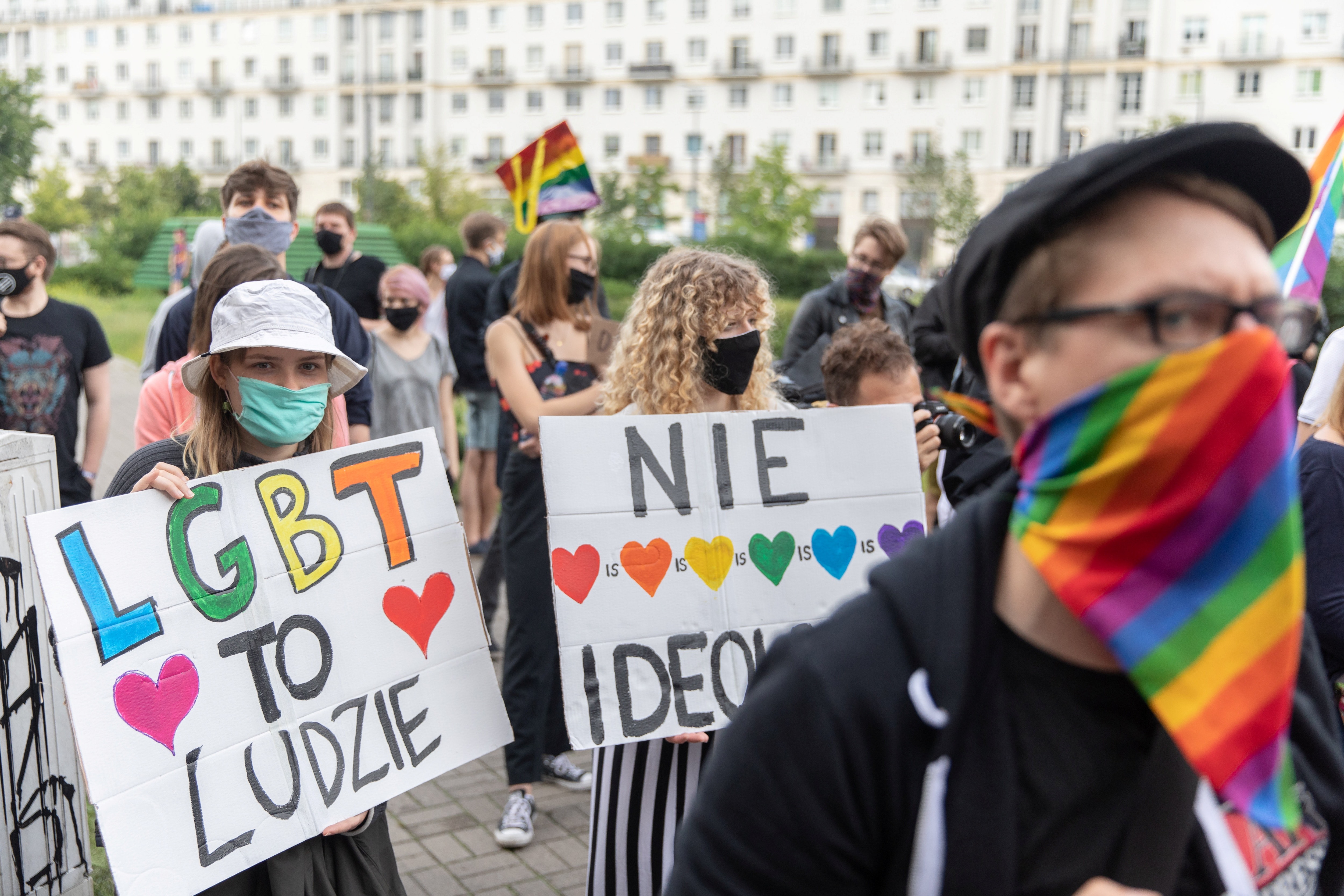The 2015 Marriage Equality referendum was significant in the push for greater LGBTQ+ rights in Ireland, partially driven by huge student involvement in campaigning for the Yes vote. However, while Ireland has made steps towards equality in recent years, there are other countries which have taken steps backwards, once again drawing student attention.
In July, incumbent Polish President Andrzej Duda narrowly defeated his opponent Rafal Trzaskowski by little more than one percent. The controversial Duda’s frequent anti-semitic and homophobic attacks were backed by the ruling Law and Justice Party (PiS) and the state media. The incumbent president went to great lengths to divide the country and voters. Touting the dangers posed by liberals, foreigners and the EU to traditional Polish values, he drew his support mainly from older, deeply religious, rural voters.
Duda pointed to steady economic growth under PiS and the popular welfare policies credited with lifting many Poles out of poverty to support his re-election bid. While his moderate opponent had pledged to maintain these policies, the candidates differed strongly on most everything else. The pro-EU Trzaskowski won over young, urban, secular voters with his investments in public transport, free childcare and support for the LGBTQ+ community as Mayor of Warsaw.
Running a campaign characterised as “anti-LGBT”, the conservative nationalist president’s win encouraged his government allies attempts to reform the judiciary in their own image and roll back legislation on abortion and gay rights. The conservative-nationalist PiS
won a second parliamentary majority in 2019 pledging to uphold Catholic values,
including support for traditional families and opposition to gay marriage. Duda also signed a “Family Charter” of election proposals, including pledges to prevent gay couples from marrying or adopting children and to ban teaching about LGBTQ+ issues in schools. According to ILGA-Europe, the European branch of the International LGBTI Association, Poland’s track record on LGBTQ+ rights is the worst in Europe.
It’s not just Duda’s rhetoric that has inspired massive uproar and opposition – his margin of victory was the tightest since the fall of communism. Duda won 51.03% of the vote while Trzaskowski received 48.97% in a mid-July runoff. The main opposition party, Civic Platform, who backed Trzaskowski, brought the results before the Supreme Court, citing “irregularities”.
Thousands of opposition supporters, rights groups and Poles living abroad filed legal challenges demanding that the election be reassessed. Among irregularities cited during the campaign and election were the government’s insistence on sending voters to the polls despite the coronavirus pandemic, and the role of the public media and government officials in the campaign. Thousands of challenges were filed by Poles living abroad, whose votes “disappeared”. However, Duda was declared to have won fairly, and with a high turnout of 68.2%, with a clear mandate.
This apparent endorsement of Duda’s bigoted messages and policies have lead to protests across Poland and abroad. In 2018/2019, there were 28 international students from Poland studying in Trinity, which is one of the highest among eastern European countries in the EU, in addition to Polish students studying in Trinity who were already living in Ireland.
Speaking to Trinity News, recent Trinity graduate Marysia Pachowicz said that protestors wanted to highlight human rights concerns in Poland. Pachowicz was an organiser of protests here in Ireland, which were cancelled due to Covid-19 regulations.
“We wanted, first of all, to raise awareness of the human rights abuses that have been taking place in Poland,” Pachowicz said. “Second, to provide a space for Polish LGBTQ+ people to speak about their experiences and highlight what it feels like to be submerged in so much hatred and abuse from the place that we consider home.”
“Third, and perhaps most crucially, to get people outside of Poland to finally stop ignoring what is happening there, to get them to pay attention and act, rather than continue turning a blind eye to the oppression and abuse and destruction of human rights that is happening right in the centre of Europe,” she said.
Pachowicz said that the reason the Polish government “has continued to do what they’re doing and increasingly become more radical in their homo- and transphobia is because they feel completely immune to the consequences of their actions”.
On the issue of Duda’s reflection the consistently high support for PiS and what can be done to make a difference, Pachowicz said: “They have been doing this for years yet they haven’t lost significant support in polls, they continue to occupy an overwhelming majority of seats in parliament and Andrzej Duda has been reelected for another term just weeks after saying that ‘LGBT is not people but an ideology’”.
“Beyond that, the EU has done little to nothing to intervene and help us, except for superficial, meaningless statements expressing their alleged condemnation of PiS’s actions but followed by no concrete action. As such, PiS feels that they can get away with anything and will stop at nothing.”
As the previous protest was cancelled due to Covid-19, there are plans to try to stage it again once it is safe to do so. In the meantime, the protest organisers are working on online campaigns and encouraging the use of chalk to draw rainbows on footpaths outside of Polish embassies Polish monuments around the world. To show solidarity with the Polish LGBTQ+ community, hashtags such as #PolishStonewall and #LGBTtoLudzie (LGBT are people) have been developed.
Pachowicz said: “Our hope is that raising awareness of their actions in other countries will change that. Our hope is that – even if their support back home doesn’t even dwindle — discussion, condemnation, and action abroad will make them realize that they cannot continue to abuse and oppress us and get away with it. They must start to face consequences to their actions before it is too late.”






